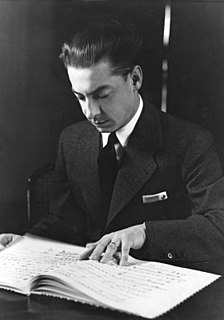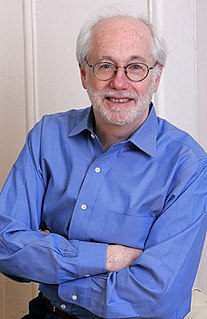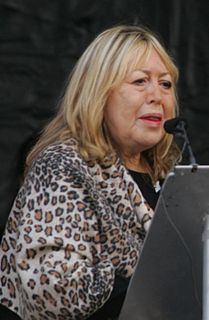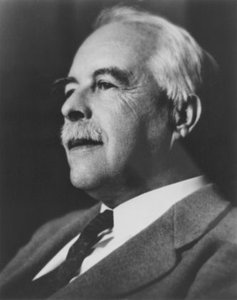A Quote by Willis R. Whitney
Our immediate interests are after all of but small moment. It is what we do for the future, what we add to the sum of man's knowledge, that counts most. As someone has said, 'The individual withers and the world is more and more.' Man dies at 70, 80, or 90, or at some earlier age, but through his power of physical reproduction, and with the means that he has to transmit the results of effort to those who come after him, he may be said to be immortal.
Related Quotes
Artistic creation, after all, is not subject to absolute laws, valid from age to age; since it is related to the more general aim of mastery of the world, it has an infinite number of facets, the vincula that connect man with his vital activity; and even if the path towards knowledge is unending, no step that takes man nearer to a full understanding of the meaning of his existence can be too small to count.
The Socratic maxim that the recognition of our ignorance is the beginning of wisdom has profound significance for our understanding of society. Most of the advantages of social life, especially in the more advanced forms that we call "civilization" rest on the fact that the individual benefits from more knowledge than he is aware of. It might be said that civilization begins when the individual in the pursuit of his ends can make use of more knowledge than he has himself acquired and when he can transcend the boundaries of his ignorance by profiting from knowledge he does not himself possess.
The man who has given himself to his country loves it better; the man who has fought for his friend honors him more; the man who has labored for his community values more highly the interests he has sought to conserve; the man who has wrought and planned and endured for the accomplishment of God's plan in the world sees the greatness of it, the divinity and glory of it, and is himself more perfectly assimilated to it.
In our profession someone can be very brilliant and acquire total technical mastery. Yet in the last resort, the only thing that really counts is his quality as a human being. For music is created by Man for Man. And if someone sees nothing more than notes in it, this can perhaps be very interesting, but it cannot enrich him. And music should exist for one purpose only; to enrich Man and give him something he has lost in most respects.
The only victory that really counts in prison is survival. But survival means more than simply being alive. It's not just the body that must survive a jail term; the spirit and the will and the heart have to make it through as well. If any one of them is broken or destroyed, the man whose living body walks through the gate, at the end of his sentence, can't be said to have survived it. And it's for those small victories of the heart, and the spirit, and the will that we sometimes risk the body that cradles them.
Many people correctly make the point that our only hope is to turn to God. For example, Charles Lindbergh, who said that in his young manhood he thought "science was more important than either man or God," and that "without a highly developed science modern man lacks the power to survive," . . . went to Germany after the war to see what Allied bombing had done to the Germans, who had been leaders in science. There, he says, "I learned that if his civilization is to continue, modern man must direct the material power of his science by the spiritual truths of his God."
I thought you said that after this many years nothing should embarrass him?" Leigh said with gentle amusement. Lucian grunted. "I guess he's more sensitive than I thought." "I am NOT sensitive," Cale snapped, irritated by the very suggestion. "It's probably his mother's fault," Lucian said, ignoring him. "Martine named him after Caliope, the muse of poetry. Between that and his father dying when he was only fifty, he's probably suffered under Martine's namby-pamby influence.
I knew the man up until our divorce - after that I didn't know the man, but it didn't stop me caring about him and worrying because of the complete change that I saw in him. He'd lost his sense of humour and he got aggressive; he wasn't for the world any more, he was just for Yoko. Before that he opened his arms and embraced the world with his wit and humour - afterwards he was a completely different kind of person.
I believe that it would be almost impossible to find anywhere in America a black man who has lived further down in the mud of human society than I have; or a black man who has been any more ignorant than I have; or a black man who has suffered more anguish during his life than I have. But it is only after the deepest darkness that the greatest joy can come; it is only after slavery and prison that the sweetest appreciation of freedom can come.
If any man would come after me, let him deny himself." The disciple must say to himself the same words Peter said of Christ when he denied him: "I know not this man." Self-denial is never just a series of isolated acts of mortification or asceticism. It is not suicide, for there is an element of self-will even in that. To deny oneself is to be aware only of Christ and no more of self, to see only him who goes before and no more the road which is too hard for us. Once more, all that self denial can say is: "He leads the way, keep close to him.
Someone killed my Mother and my Father and my Sister?" "Yes, someone did." "A Man?" "A Man." "Which means," said Bod, "you're asking the wrong question." Silas raised an eyebrow. "How so?" "Well," said Bod. "If I go outside in the world, the question isn't who will keep me safe from him?" "No?" "No. It's who will keep him safe from me?
He'd once known a man who said that life hinged on the moment, that everything changed in the blink of an eye. Tesseract knew the truth of that as well as anybody. It was in those moments that he struck, after all, snatching people's lives away. He'd always known that it was only a matter of time before one of those moment's worked against him.







































